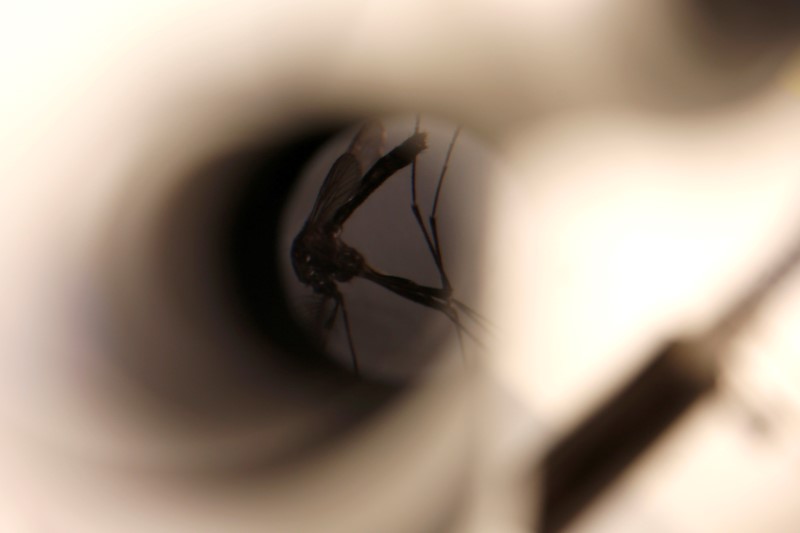By Julie Steenhuysen
CHICAGO (Reuters) - U.S. health regulators have cleared the way for a trial of genetically modified mosquitoes in Florida that can reduce mosquito populations, potentially offering a new tool to fight the local spread of Zika and other viruses.
The U.S. Food and Drug Administration said on Friday that a field trial testing Intrexon Corp's (N:XON) genetically engineered mosquitoes would not have a significant impact on the environment. The announcement came as Florida officials grapple with the first cases of local Zika transmission in the continental United States.
Florida health authorities have identified 16 Zika cases spread by local mosquitoes and are ramping up aerial pesticide spraying of a Miami neighborhood where all of the people are believed to have been infected.
Pregnant women are most at risk from Zika, which can cause a rare birth defect in fetuses called microcephaly. The Zika outbreak was first detected last year in Brazil and has spread rapidly in the Americas, primarily through mosquito bite.
Intrexon's Oxitec unit has been working for years to kick off a trial in the Florida Keys to assess the effectiveness of its mosquitoes to reduce levels of the insects that carry diseases, including Zika, dengue, Yellow Fever and chikungunya.
The Oxitec method involves inserting an engineered gene into male Aedes aegypti mosquitoes. When they mate with female mosquitoes in the wild, they produce offspring that cannot survive to adulthood.
The FDA has been reviewing Oxitec's application for use of its technology as an investigational new animal drug. Its environmental assessment helps clear the way for the company to begin a clinical trial in Key Haven, Florida that would test whether the genetically modified mosquitoes will suppress the wild populations over time.
Results of that trial would be used to support approval of the company's technology, a process that could take more than a year. Similar testing in Brazil, Panama and the Cayman Islands have shown that the Oxitec mosquitoes can reduce local Aedes aegypti populations by more than 90 percent.
'THEY ARE USING US'
To begin the trial, however, the company must first await the results of a vote in the Nov. 8 general election seeking community approval for the trial.
Oxitec Chief Executive Hadyn Parry said in a conference call that the vote is non-binding, and the decision about whether to proceed is up to the Florida Keys Mosquito Control District, the local body responsible for mosquito control.
Community support in the vote is not guaranteed.
In Key Haven, a suburb of large, waterfront homes near Key West where the trial is slated to take place, yard signs have popped up declaring "no consent" to the release of genetically modified mosquitoes.
Kathryn Watkins, a Key Haven resident recruited by trial opponents, is seeking election to the board overseeing the Florida Keys Mosquito Control District.
"It just has everyone scared," Watkins said, adding that local residents see themselves as unwilling test subjects. "The genetically modified male has to mate with a wild female, and the wild female has to bite us in order to lay eggs," she said.
"They are using us in this trial without consent," she added.
As his company awaits the vote, Parry said he intends to ask the FDA for an emergency-use authorization that would make the product available to help battle Zika in the United States. The FDA has approved several diagnostic products under this designation.
But it is not likely to be granted under current statutes. FDA spokeswoman Theresa Eisenman said there is no "fast-track" designation for new animal drugs, and emergency-use provisions in the applicable law do not apply to animal drugs.

The World Health Organization has declared a global health emergency over Zika's link to microcephaly, a condition marked by abnormally small head size that can lead to severe developmental problems. The agency has suggested that alternative approaches to fighting mosquitoes that carry the virus might be an important way to suppress mosquito populations.